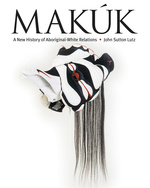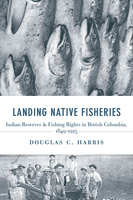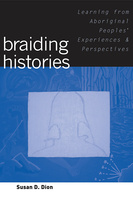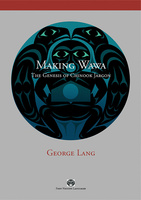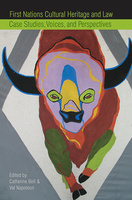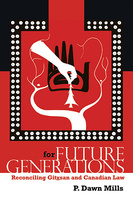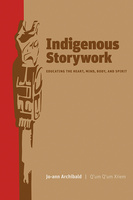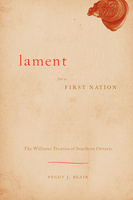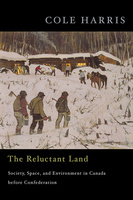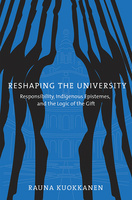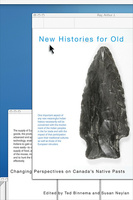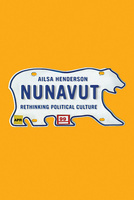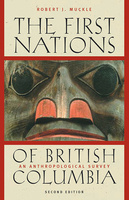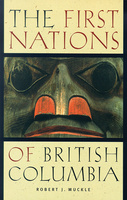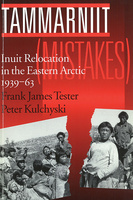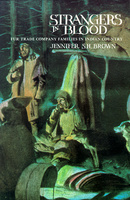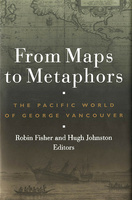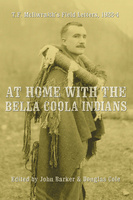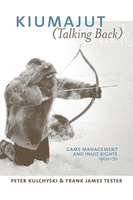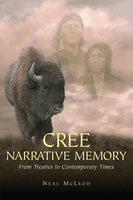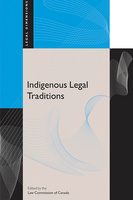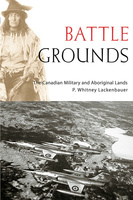Landing Native Fisheries
Indian Reserves and Fishing Rights in British Columbia, 1849-1925
Braiding Histories
Learning from Aboriginal Peoples’ Experiences and Perspectives
Making Wawa
The Genesis of Chinook Jargon
A two-edged sword of reconciliation and betrayal, Chinook Jargon (aka Wawa) arose at the interface of “Indian” and “White” societies in the Pacific Northwest. Wawa’s sources lie first in the language of the Chinookans who lived along the lower Columbia River ...
Indigenous Diplomacy and the Rights of Peoples
Achieving UN Recognition
With a focus on international law, Henderson analyzes what the UN Declaration of the Rights of Indigenous Peoples means for Indigenous peoples around the world and for Canada.
First Nations Cultural Heritage and Law
Case Studies, Voices, and Perspectives
For Future Generations
Reconciling Gitxsan and Canadian Law
Dawn Mills passionately shows how reconciliation can be achieved between Canada’s First Nations and the various levels of government.
Moving Toward Justice
Legal Traditions and Aboriginal Justice
Exploring constitutional and administrative policy changes that underscore the urgent need for Aboriginal justice reform.
Lament for a First Nation
The Williams Treaties of Southern Ontario
An important analysis of how the 1994 Howard decision on the Williams Treaties was based on erroneous cultural assumptions that favoured public over special rights.
The Reluctant Land
Society, Space, and Environment in Canada before Confederation
Aboriginal Self-Government in Canada, Third Edition
Current Trends and Issues
An interdisciplinary guide for learning about government policy and the aspirations of Canada’s Aboriginal peoples.
Navigating Neoliberalism
Self-Determination and the Mikisew Cree First Nation
This remarkable book argues that neoliberalism, which drives government policy concerning First Nations in Canada, can also drive self-determination -- including the Mikisew First Nation, which successfully exploited opportunities for greater autonomy and well-being that the current political and economic climate has presented.
Reshaping the University
Responsibility, Indigenous Epistemes, and the Logic of the Gift
New Histories for Old
Changing Perspectives on Canada’s Native Pasts
The collection combines essays by prominent senior historians, geographers, and anthropologists with contributions by new voices in these fields, to shed new light on the history of scholarship on Canada’s Aboriginal past.
Let Right Be Done
Aboriginal Title, the Calder Case, and the Future of Indigenous Rights
Nunavut
Rethinking Political Culture
Original and provocative, Nunavut explores political attitudes, behaviour, and institutions in Nunavut before, during, and after the creation of the new territory, challenging our understandings of how political cultures are generated and sustained.
First Nations of British Columbia, Second Edition, The
An Anthropological Survey
A concise and accessible overview of First Nations cultures and issues in the province, this book familiarizes readers with the history, diversity, and complexity of First Nations to provide a context for contemporary concerns and initiatives.
No Place to Go
Local Histories of the Battered Women’s Shelter Movement
The first history of the battered women’s shelter movement in Canada, this book traces the development of transition houses and services for abused women and the campaign that made wife battering a political issue.
The First Nations of British Columbia
An Anthropological Survey
A concise and accessible overview of First Nations’ peoples, cultures, and issues in the province.
Tammarniit (Mistakes)
Inuit Relocation in the Eastern Arctic, 1939-63
Strangers in Blood
Fur Trade Company Families in Indian Country
The experience of these conscientious objectors offers insight into evolving attitudes about the rights and responsibilities of citizenship during a key period of Canadian nation building.
From Maps to Metaphors
The Pacific World of George Vancouver
Now available in paperback for the first time, From Maps to Metaphors, the classic on Vancouver's voyage, illuminates the European and Native experience of the “discovery” of the Pacific coast.
At Home with the Bella Coola Indians
T.F. McIlwraith's Field Letters, 1922-4
Kiumajut (Talking Back)
Game Management and Inuit Rights, 1900-70
Examines Inuit relations with the Canadian state, with a particular focus on regulating Inuit based on government animal counting methods, and the emerging regime of government intervention.
Cree Narrative Memory
From Treaties to Contemporary Times
Drawing upon the narrative memory of his family from the James Smith and Sandy Lake reserves in Saskatchewan, Neal McLeod gives a narrative history of the determination and adaptability of Plains Cree.
Indigenous Legal Traditions
The essays in this book present important perspectives on the role of Indigenous legal traditions in reclaiming and preserving the autonomy of Aboriginal communities and in reconciling the relationship between these communities and Canadian governments.
The Ermatingers
A 19th-Century Ojibwa-Canadian Family
An exciting story that contributes to our understanding of Indian and European biculturalism, through the story of fur trader Charles Ermatinger, his Obijwa wife, Mananowe, and their three sons.

